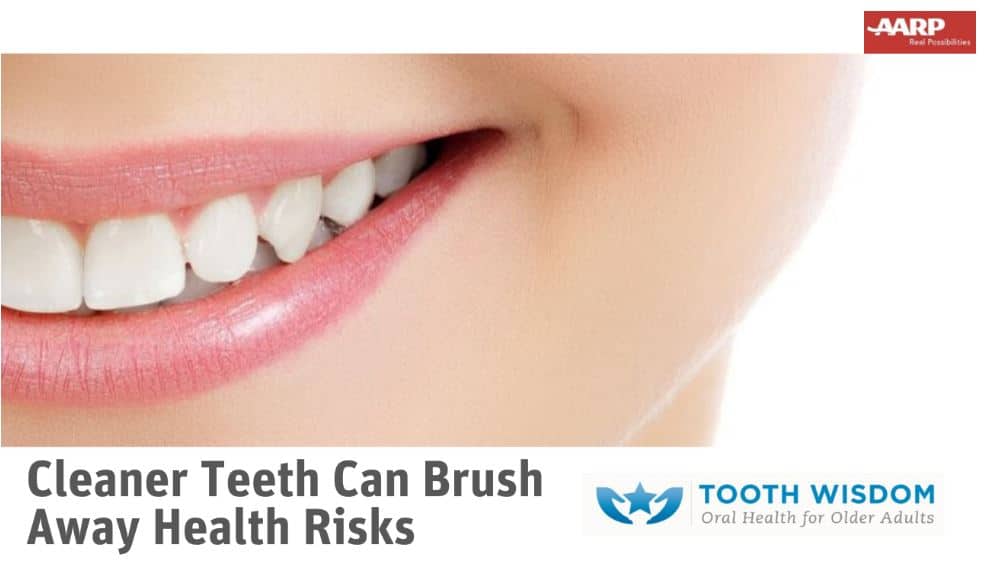by Kimberly Rae Miller, AARP Bulletin, October 2018
Prevent diabetes, cancer and more by spending more time with your toothbrush .
Think twice the next time you’re tempted to skip brushing your teeth — you might just save your life. When gums are inflamed and bleeding, it’s often gingivitis; a dentist’s care and good daily teeth cleaning can reverse it. But let the problem continue and the bones and tissue that hold your teeth in place begin to get damaged.
That’s called periodontitis. Once it sets in, you’re at risk of something much larger than a few missing teeth. “Periodontal disease is a chronic inflammatory disease that stimulates the body’s immune system,” says Jeffrey R. Lemler, a periodontist in New York City. Bleeding gums allow bacteria and inflammation to enter the body and wreak havoc. Where? Pretty much everywhere.

Poor dental habits can have a surprising ripple effect throughout your body.
Sharper brain
People with severe periodontal disease were three times more likely to have Alzheimer’s disease, according to a statistical review. In another study, stroke patients had higher levels of certain bacteria in their saliva, demonstrating a link between oral hygiene and stroke risk.
Clearer lungs
If you find yourself headed to the hospital, bring your toothbrush. A recent study found that providing patients with oral care decreased instances of hospital-related pneumonia by 39 percent.
Lower cancer risk
Postmenopausal women who’ve experienced periodontal disease are at increased risk for breast, esophageal, gallbladder, skin and lung cancers, according to a 2017 study.
Healthier kidneys
The correlation between poor periodontal health and atherosclerosis has been well established for a few decades now. Atherosclerosis can be the root of a bunch of health problems you want nothing to do with, like chronic kidney disease.
CLICK HERE to continue reading the article to know more about the effects of poor dental habits throughout your body



Comments are closed.